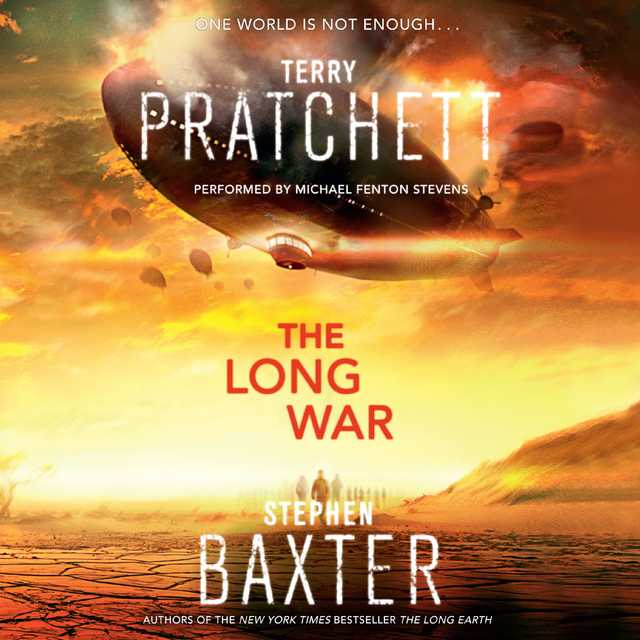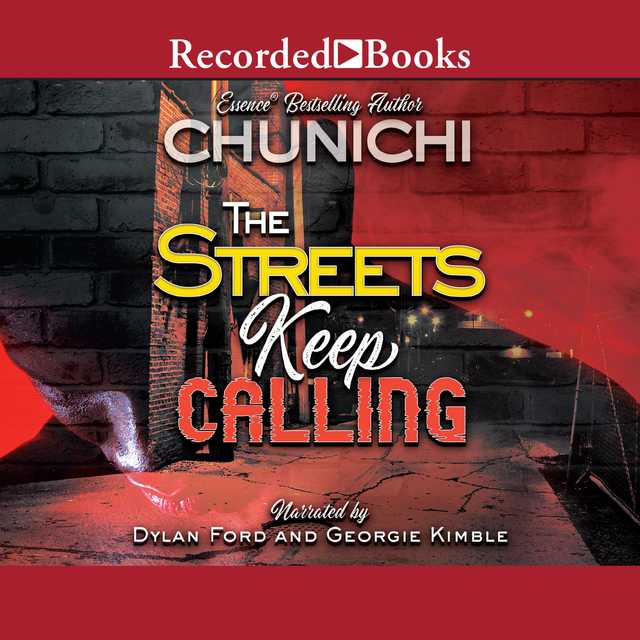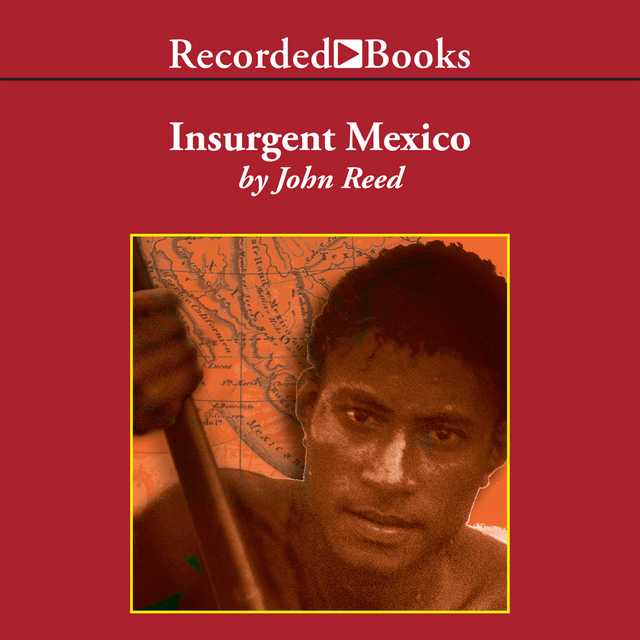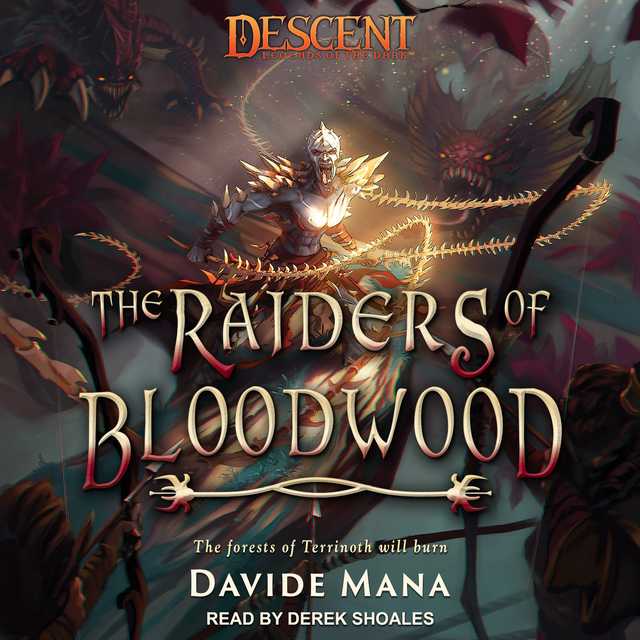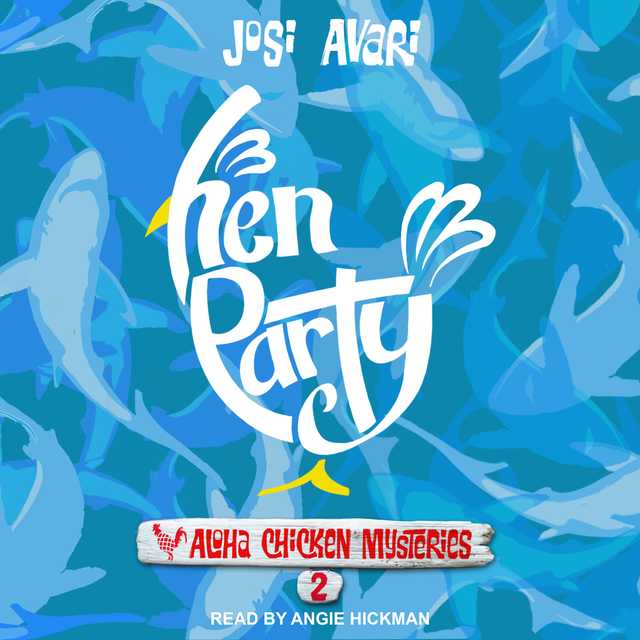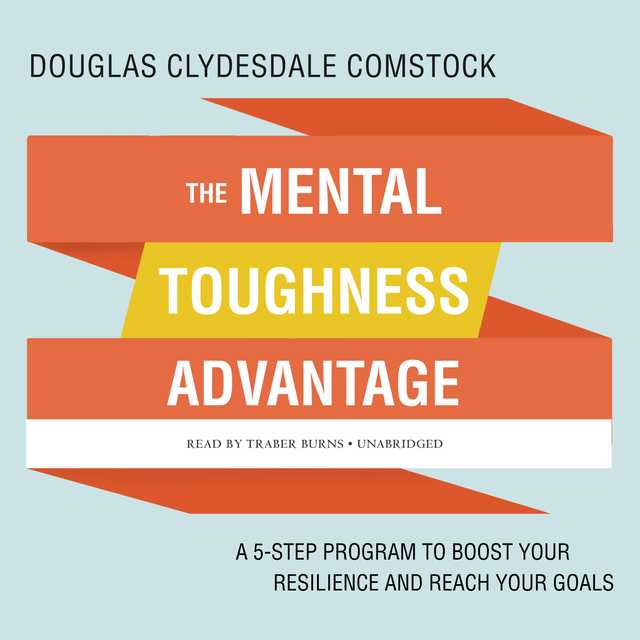The Long War Audiobook Summary
The Long War by Terry Pratchett and Stephen Baxter follows the adventures and travails of heroes Joshua Valiente and Lobsang in an exciting continuation of the extraordinary science fiction journey begun in their New York Times bestseller The Long Earth.
A generation after the events of The Long Earth, humankind has spread across the new worlds opened up by “stepping.” A new “America”–Valhalla–is emerging more than a million steps from Datum–our Earth. Thanks to a bountiful environment, the Valhallan society mirrors the core values and behaviors of colonial America. And Valhalla is growing restless under the controlling long arm of the Datum government.
Soon Joshua, now a married man, is summoned by Lobsang to deal with a building crisis that threatens to plunge the Long Earth into a war unlike any humankind has waged before.
Other Top Audiobooks
The Long War Audiobook Narrator
Michael Fenton Stevens is the narrator of The Long War audiobook that was written by Terry Pratchett
Sir Terry Pratchett was the internationally bestselling author of more than thirty books, including his phenomenally successful Discworld series. His young adult novel, The Amazing Maurice and His Educated Rodents, won the Carnegie Medal, and Where’s My Cow?, his Discworld book for “readers of all ages,” was a New York Times bestseller. His novels have sold more than seventy five million (give or take a few million) copies worldwide. Named an Officer of the British Empire “for services to literature,” Pratchett lived in England. He died in 2015 at the age of sixty-six.
About the Author(s) of The Long War
Terry Pratchett is the author of The Long War
More From the Same
- Author : Terry Pratchett
- Going Postal
- The World of Poo
- The Globe
- The Science of Discworld
- A Slip of the Keyboard
- Publisher : HarperAudio
- Abraham
- American Gods [TV Tie-In]
- Dead Ringer
- House of Sand and Fog
- Prey
The Long War Full Details
| Narrator | Michael Fenton Stevens |
| Length | 13 hours 48 minutes |
| Author | Terry Pratchett |
| Category | |
| Publisher | HarperAudio |
| Release date | July 16, 2013 |
| ISBN | 9780062283900 |
Subjects
The publisher of the The Long War is HarperAudio. includes the following subjects: The BISAC Subject Code is Fiction, General, Science Fiction
Additional info
The publisher of the The Long War is HarperAudio. The imprint is HarperAudio. It is supplied by HarperAudio. The ISBN-13 is 9780062283900.
Global Availability
This book is only available in the United States.
Goodreads Reviews
Michelle F
November 24, 2020
From the book jacket:The Long Earth is open. Humanity now spreads across untold worlds linked by fleets of airships encouraging exploration, trade and culture.The Long War is certainly a continuance of exploration – a long reaching tour pointing out just a few of the highlights of possibility in this enormous landscape of maybes. The plot(s) in this second book of the series focus on the American claim of governance across all the Stepwise “Americas”, and the resistance from the spread-out inhabitants who question the benefit and rights of such a set up. We also follow Joshua, Monica and Sally as they try to avert a fallout with the sweet harmless Trolls, who quite simply want to avoid being mistreated and enslaved.There continues to be so many 'what-ifs' about this series, and I love the mental exercise.One thing I noticed they haven't much touched on (perhaps wisely, though I myself would love to hear it) is religion. In my own imaginings from their base supposition, I envision how interesting everything gets when there is a holy land for everyone, when there can be an entire planet of only like-faithed people or political ideals. It would only add support for the conflict in The Long War; the tendency for ideologies to subjugate, fix, convert and ultimately assert power and control.I get the impression that The Long War is at heart a commentary on humanity's battle to be better than these basic impulses – the central idea that our superiority is all encompassing and inviolate. And as always (at least with Pratchett) I find the observations wry and astute. The overall faith in goodness is impossibly optimistic but endearingly, innocently charming. (There is an extended exchange in Chapter 60 that encapsulates what I think is the summation of Pratchett and Baxter's vision of eventual hopefulness, but it makes more sense to come across it organically, so I won't lay it out here. Also it's long and I'm lazy.)The threads in The Long War do weave into more of a plot than in The Long Earth. The “war” that they speak of never quite occurs, with many of the main characters doing their part to prevent it, at least in the most tangible sense. The story is far from over, though.
Barry
July 07, 2020
Fabulous, the concepts are thought provoking, the story continues - on to number three!
Cissa
August 01, 2013
I see I liked this more than most reviewers did. I'll try to explain why.OK, the other reviewers are correct: the characters are pretty much cliches, and mostly do not directly have any conflict with each other (though they missed a GREAT opportunity with the Sally/Helen subplot!). Mostly, though, everyone is railroaded by the book's version of fate or destiny, which is an AI. (I doubt that this is a spoiler for anyone who's read #1).The overall plots are diffuse, though some of the individual, immediate scenarios are well-handled. The overarching plots are seen more obliquely than directly...And that is why I gave it 4 stars."Life is what happens when you're making other plans"- and that's what's going on here. I don't know if it was intentionally done, but it was pretty clever. Even with problems people were trying to address directly- usually the direct approach was a FAIL, and only more indirect, holistic approaches worked. And that's appropriate, and reflective of real Life (though many of us read fiction because things ARE more direct there than in RL!).What does it mean to be a member of a bellicose species that suddenly has really no excuse for war, nor any realistic way of waging it? How can you keep people (in a broad sense) oppressed when they can just leave? For me, these questions- and the sometimes direct, sometimes oblique approaches to them, make this book well worth reading... but the reader does have to put many of the pieces together. I think that's good; otherwise it'd be too much of a polemic.Anyway. I liked it, and am looking forward to #3.
Kam
June 26, 2013
One of the greatest problems humanity faces as it heads into the twenty-first century is resource management. As humanity's population grows, so does its appetite for a hundred different resources: some as basic as food and water, and others more esoteric, such as rare-earth metals. The problem is,
Bradley
May 10, 2017
The title of this book is kinda misleading, I think. Maybe it was intended to drum up excitement in a way that may not have been needed. The first book of the Long Earth spans across more than a million alternate Earths that we are now able to "step" across, and the implications are explored at least in the early days quite well.This one takes place 25 years into the colonization phase and we're in a cooperative space with "trolls" humanoids that grew up being able to "step" and have a singing language that is much smarter as a whole for their species than is generally understood by us stupid humans.Of course, the idiots of our species start killing them off while others work with the others in tandem, and then there's also the OTHER humanoids we jokingly named Elves and Kobolds and First Person Singular (for a singular intelligence that developed to devour whole Earths).This might be the reference to the title, but if so, it's more about humans fighting human nature and trying to limit the danger of our shortsightedness as bigots on Datum Earth (Or original home) spew vitriol about all the people who left, turning into a religious and economic and political quagmire.Even so, this book still remains, at its core, an adventure that's part western, part hard-sf, and all a brilliant mesh of Baxter's vision and science and Pratchett's great worldbuilding and characters. Oh, and the end is a real kicker. I can't wait to get on the rest of these novels. It's damn fun and easy, despite its apparent hard-sf premise of many-worlds. :) MANY worlds. :)
Anne
October 11, 2013
The sequel to THE LONG EARTH! This book continued and expanded on all the numerous plotlines and characters we met in Book 1. Now that humans are colonizing all the alternate versions of Earth that were opened on Step Day, of course the government is trying to reach their hands into the pie. Trade and military expeditions are accomplished across the alternate earths via "twains," fleets of blimps that can travel across earths high in the air. In THE LONG WAR we meet a sensible military captain who's checking on the colonies in her ship; get reunited with Joshua, who's now married to Helen the pioneer girl; and journey with him to many different planes as he and Sally try to figure out what is happening with the humanoid "trolls." Other humanoid residents of the alternate earths are introduced in this volume as well, including a dog species that I couldn't help picturing as giant cartoon Snoopys...Few of the many plotlines are tied up in THE LONG WAR, and like the first book, it ends on a note of disaster, so here I will sit waiting for Book 3 :)
Trish
February 03, 2019
Those who expect this to be an action-filled story about war, weapons, injuries and such will be very disappointed.Those, however, who expect an adventure, a well-written study of society and possibilities (the Long Earth IS about possibilities after all) - geological, mythological, biological and physical alike - will be delighted.As in the first book, you will also find wonderfully humorous passeges in this sequel and the characters have even more depth.What stands out is that this second book is somewhat darker than the first. Not just because of what happens to Joshua, but the over-all situation. I am still pretty shaken about Monica and Yellowstone (although I expected both) and can't wait to read the third and final book to know in which direction the authors will take the story.Not just a story. Not just fun. Not just challenging. Not just one possibility. Endless possibilities, formidable writing, definitely meant to amplify our worldview and our minds - and our hearts. You'll see. Just read it.
Larry
July 25, 2013
I highly recommend that all humans of datum earth go forth and read the long earth and then its sequel, the long war. I think the long war lives up to the long earth very nicely and I once more can't wait for the next book. While there were a few inconsistancies (such as the ship named the Benjamin franklin having metal fatigue when it was earlier stated that metal couldn't be brought from one reality to another) over all it was very interesting. Some of the twists and turns took me by surprise (such as the kobolds reaction to having his life saved) and I had to think, yeah, they got that spot on...other surprises I could see coming, like the event in the end of the book, though that was okay, as it was heavily forshadowed. Over and over again during the book I had to ask myself just what was the long war, really, the true nature of it. I think while some might have pointed at it as the war between earth 0 and the colony earths, it was really more a metaphysical war, of humanity finding its place in the wonders of the multiverse and the struggle to be and exist despite the knowledge of the vastness of it all. anyway, I don't know if this book will appeal to everyone, but it should appeal to most, so go forth and read it after reading the long earth. while the concept of the book still drives it, I think this book expanded on the concept significantly and created new questions and philosophy to contemplate.
Dan
June 30, 2013
I adored The Long Earth and if anything this is even better. Some years on from the first book, this one continues in a universe where humans have learnt to "step" across to other version of the Earth, a series of parallel worlds if you will, all different and yet all the same. This book has a much stronger plot than the first book. I say "plot" but actually there is lots going on at the same time which interlink but are not connected much. The first main strand is the US government trying to keep control over the people living in it's shadow on the long Earths and we see the Benjamin Franklin airship travel to show the new stepwise towns the authority is still there, although this mission begins to change as it continues. The second is the disappearance of the trolls from across the Long Earth as humans treat them badly and Lobsang sends Joshua Valiente back out into the Long Earth to find them. There are several themes across the book, the main one being that of exploration. The long Earth is supposedly endless and we see a bit more of it as the Benjamin Franklin, Joshua Valiente and two Chinese airships travel across it. The possibilities are endless and the authors give us some fantastic worlds. Another theme is that of authority as the humans living in the shadow of America question whether they should still be governed by the US government. It's an interesting debate which is well handled and is the subject of the long war of the title, though not in the way you might expect. I guess the other major theme is what it means to be human. There is lots of talk about the trolls and whether they are closer to animals than to humanity and we find out lots more about them and various other sapient life forms across the Long Earth including the kobolds, a type of elf who know much more than they like to let on. This part feels the most fictional of the whole book yet at the same time makes you consider lots about humanity in general. All in all, a fantastic sequel and it sets up a third book which I am really looking forward to. Nice to see a great partnership produce such a stunning series.
Max Reads
April 25, 2021
THE STORY SO FAR. We're following the events unfolding and the progress of humanity after "step day", when the leaked plans for easy to buil "stepper boxes" allowed people to start moving east and west into parallel earths. Empty, resource rich, new and wild frontiers. We followed Lobsang, an AI who may or may not be a reincarnated tibetan motorbike repairman and Joshua Valiente, a natural stepper who can do it without the box as they left to find the boundaries of the long earth. Going on a Jules Verne esque journey into the unknown to see how far they could get.But it's now a generation later, and the long Earth is getting noisy. Fleets of airships ply the skies connecting the civilisations with information and trade, exterting the control of the Datum Earth government. The peaceful trolls who altruistically help humans develop are leaving. Retreating to parts unknown and leaving humans to fend for themselves, upsetting the natural balance as they leave ecosystems of which they were an integral part.Joshua Valiente lives in hell-knows-where, with his wife and children, and leaves once again into the long Earth on a quest to bring back the trolls. Sally, somebody who can navigate the long Earth in a mysterious way, stepping multiple planets at a time in a single jump, journeys to the edge of "gap", an absent Earth and home of the new space program, to rescue trolls being experimented on. Lobsang also recruits a new character, a priest called Nelson to travel with him to achieve his own mysterious goals.And at the same time we follow a Chinese expedition, travelling East from Datum Earth, the opposite direction to America, developing it in a totally different way, whose goal is to reach Earth 20 million and push the boundaries further than Lobsang and the black corporation. -This is laid out very differently than the previous book in that it follows multiple characters and storylines, which is something I really thought was missing in the previous book so I actually enjoyed this one more, I think. You have Joshua Valiente's story, Sally's story with a journey towards a single goal, and then you have Nelson's story where he's following a series of clues, and the Chinese Expedition "East". The themes of human expansion and mastering frontiers really actually give these stories quite a Western vibe.On the topic of the Chinese expedition, while I think it didn't tie a lot into the main storyline of this book I think it's going to have implications in the series further down the line. I think it was INTRODUCED in this book though, so the "slideshow" feeling of the first book wasn't lost because that was one of the best parts of book 1. In book 1 we had a constant stream of scenes and descriptions from world after world on the Lobsang expedition West and that's something you wouldn't have gotten from the other storylines in this one.There's stuff touched on and introduced in this book which is going to make the series richer, stuff that's super interesting. You have the introduction of Kobolds. A Troll variant species that's smart, rare and elusive who have been connecting trade between other worlds in the Long Earth for thousands of years. We have the Beagles, and the exploration of a world where wolves evolved into a sentient and dominant species, creating their own society, and the look we got into how that society would work was really interesting! We also have "the gap". As Lobsang and Joshua were travelling along in book 1 they hit a verison of Earth that wasn't there. Just a void, a universe in which Earth was obliterated or never existed. I love the exploration of how that opens up space travel. Instead of the cost of launching things into orbit, just step them off the edge into the middle of space. I love the idea of the thing (like reusable rocket parts today) that opens up space being something so simple as an economic cost reduction.With the issues about "what constitutes country" and "what constitutes citizenship" one thing this series does so well is make you realise how many of the rules we let dictate and govern our lives are these weird societal constructs to regulate behaviour and don't actually have any basis or make much sense at all.There STILL isn't a lot in the way of plot in this book, and I think it's something that's going to let the series down in a big way for a lot of people. In all honesty this feels more than anything like an exercise in worldbuilding, which is what I'm all about, so I'm honestly fine with that, this series is entirely my jam. -Quick little spoiler for a bit I really liked:I thought that the title was going to be a reference to a war waging across multiple Earths, but I think the misleading and what it was actually about, i.e. the long Earth being an end to the human war that's been waging since time immemorial. I thought that was fantastic, and the revelation of that moment was brilliant. A lot of people in the reviews talk about how the title makes no sense because there's no war, but to them I'd say read it again.-Stuff I wasn't too keen on or things I was thinking:I think realistically in this kind of world, with this happening and the implications of a Long Earth, religion and religious institutions would play a bigger part in the unfolding of events. There would be more questions asked about a creator, or Long Heaven/Long Hell, about religious "missionary" mindset spreading beliefs into uncharted territory among "savages". I know it's scifi and I'm not religious myself but it is an important part of a worldbuild because it's an important thing for a lot of people. It would be easy to tie stuff in because of Joshua Valiente's history as being raised by nuns, and we've just had the proper introduction of Sister Agnes as a main character. I hope the religious stuff gets touched on at some point in this series. One really good part of book 1 was the conversation and interaction and the learning that went on between Joshua and Lobsang, and in this book you don't really have it. Joshua has settled down now he has his family, but it seems like he's deliberately been distancing himself from Lobsang and cutting him out and I'm not entirely sure why. Is it just him looking for stability?With the different parts of Lobsang, with him being spread over many worlds with parts of him being totally cut off, will they all have the same investment in re-syncing or being part of a whole. Would these cut-off bits have the ability to become independent entities? What would happen if there were a conflict between Lobsangs or ASPECTS of Lobsang? Hopefully that will be something touched on too. - SO I'm gonna give this one 4 stars even though I did enjoy it slightly less than the first one. But goodreads doesn't let you do points and halves.
Thomas
October 05, 2013
Prachett and Baxter's Long Earth was a good but ultimately disappointing book. The let-down being the sort-of cliffhanger, to be continued conclusion. The worst consequence of this action being an undue amount of pressure on the sequel. So how does Long War stand-up?Depends what you liked about Long Earth. If you're enjoying the sociological and cultural examination then Long War will be pleasing, despite the name Long War is at least 2/3 focussed on the effects of discovering the long-earth rather than having a coherent storyline for the main characters.I'm afraid if you're reading this one for the main characters, plotline or indeed the War then Long War will only rate 2 stars. First of there is hardly any Lobsang, and there are numerous other characters followed than the interesting Joshua, and the relatable Jansson. Secondly after an opening tease of humanoids starting their own long-war this plotline doesn't even develop until the last eighth of the book, and while concluding with a touch of humour leaves one with a feeling deprived of satisfaction.I'm assuming this is being set-up as a continuing series as there are many questions remaining, well one really - what is with First Person Singular? I for one will be continuing with it, but simply because I enjoy the analysis and the setting. I wouldn't be turning to this book for dramatic ravaging storylines.
Cherie
May 07, 2015
I had to go back and look up what I wrote about the first book in this series befor I could sit down and write up my comments about this second one.What a contrast in the way that I felt at the end of this story! The biggest contrast to this second book from the first one is that there is almost too much going on. So many new characters and so many new worlds, millions and millions of "steps". A lot of back and forth from situation to situation. I did not mind it too much as it all seemed to be on the same level - no one thing I wanted to keep reading about from one chapter to the next, until the very end. One or two events, maybe, but no one thing seemed more important than the next. I liked this book better than the first because it felt like there was more time given to places and the life and fauna found in the different step worlds.New life. New places. New means of travel. It is really all hard to take in, but really makes one think. I do not completely grasp all of the story line and I am not sure I can swollow it all either, but it IS more interesting the second time around.All of the characters from the first book are in this second one and more, many many more. Oh, and this might be a spoiler, but don't keep waiting to find out about the "war". I did and I shouldn't have. Don't worry about it. Read this story and you will see.
Magdalena
July 17, 2016
The Long War / Pitkä sota lojui aloitettuna pari vuotta yöpöydän lukupinossa. Odotin oikeaa hetkeä sen lukemiseen, jota ei tuntunut koskaan tulevan. Tänä kesänä oli ilmeisesti sitten sen verran aikaa aivolla, että imeydyin vihdoin maailmaan mukaan. Kirjan ongelma on, että siinä on paljon hahmoja, jotka tekevät loppujen lopuksi aika samanlaisia asioita: matkustavat Pitkässä Maassa. Mitään suurta juonta ei ole. Mitään sotaa ei sanan perinteisessä merkityksessä käydä. Trilogian aloittaja, Pitkä Maa, ei tuntunut oikein pääsevän pintatasoa syvemmälle ja - tarkistin - olen antanut sille kolme tähteä (viihdyttävä, ihan jees). The Long War, Pitkä sota, on tässä suhteessa edeltäjäänsä parempi. Kirjan pääviehätys on nimenomaan Maan lukuisissa eri variaatioissa, niiden omituisuuksissa ja potentiaalissa. Ajatukset, joita oli rakennettu ensimmäisessä osassa pääsivät oikeuksiinsa tässä toisessa. Tuntui myös siltä, että työpari Pratchett & Baxterin kerronta oli löytänyt uomansa, tekstiä oli miellyttävä lukea ja se imi mukaansa. Ei tämä varmasti kaikkien kirja ole, eikä ollut minunkaan, ennen kuin tuli laiska, sateinen kesäpäivä, jona oli hyvä matkustaa. Mutta koska löysin sen päivän ja nautin matkasta, annan tälle hyvillä mielin neljä tähteä. Ja todellakin aion lukea myös Pitkän Marsin.
Ike
August 30, 2015
This is the second book of the Long Earth series, and it takes place about a decade after the end of the first book. It follows many of the same characters, and I was pleasantly surprised to read about the adventures of Sally and Janssen, two women who I thought had been shortchanged in the first book. The title led me to believe there would be far more action than was actually in the book. A more apt title would be: The Long Introduction to Book Three. While the main storyline involving Sally and Janssen was gripping, creative, and quite satisfying, it was interspersed with chapters about other characters who are foreshadowed to have significance in later books. This had the effect of dampening the momentum and allowing me to forget what exactly was going on. I will be reading the next book in the series - hopefully it stays true to its title.
Darren
February 09, 2015
An interesting sequel to the Pratchett and Baxter’s The Long Earth. We return to the character of Joshua a generation after the events in the original novel. Joshua has a family now and mankind has spread across the Long Earth like some deadly violence. This has repercussions on the trolls and we see the emergence of a new species, the Beagle’s, to the series.As with the first novel in the series it was, perhaps, a little over long and overly ambitious. There were lots of plot strands and just when you are settling into one, it jumps back to another. However, with two writers of such a high calibre it’s still a very enjoyable read and I’m hoping some of those stray plot strands are tied up in book three, The Long Mars. If you’re looking for an enjoyable sci-fi epic this is a decent and intelligent read.
Frequently asked questions
Listening to audiobooks not only easy, it is also very convenient. You can listen to audiobooks on almost every device. From your laptop to your smart phone or even a smart speaker like Apple HomePod or even Alexa. Here’s how you can get started listening to audiobooks.
- 1. Download your favorite audiobook app such as Speechify.
- 2. Sign up for an account.
- 3. Browse the library for the best audiobooks and select the first one for free
- 4. Download the audiobook file to your device
- 5. Open the Speechify audiobook app and select the audiobook you want to listen to.
- 6. Adjust the playback speed and other settings to your preference.
- 7. Press play and enjoy!
While you can listen to the bestsellers on almost any device, and preferences may vary, generally smart phones are offer the most convenience factor. You could be working out, grocery shopping, or even watching your dog in the dog park on a Saturday morning.
However, most audiobook apps work across multiple devices so you can pick up that riveting new Stephen King book you started at the dog park, back on your laptop when you get back home.
Speechify is one of the best apps for audiobooks. The pricing structure is the most competitive in the market and the app is easy to use. It features the best sellers and award winning authors. Listen to your favorite books or discover new ones and listen to real voice actors read to you. Getting started is easy, the first book is free.
Research showcasing the brain health benefits of reading on a regular basis is wide-ranging and undeniable. However, research comparing the benefits of reading vs listening is much more sparse. According to professor of psychology and author Dr. Kristen Willeumier, though, there is good reason to believe that the reading experience provided by audiobooks offers many of the same brain benefits as reading a physical book.
Audiobooks are recordings of books that are read aloud by a professional voice actor. The recordings are typically available for purchase and download in digital formats such as MP3, WMA, or AAC. They can also be streamed from online services like Speechify, Audible, AppleBooks, or Spotify.
You simply download the app onto your smart phone, create your account, and in Speechify, you can choose your first book, from our vast library of best-sellers and classics, to read for free.
Audiobooks, like real books can add up over time. Here’s where you can listen to audiobooks for free. Speechify let’s you read your first best seller for free. Apart from that, we have a vast selection of free audiobooks that you can enjoy. Get the same rich experience no matter if the book was free or not.
It depends. Yes, there are free audiobooks and paid audiobooks. Speechify offers a blend of both!
It varies. The easiest way depends on a few things. The app and service you use, which device, and platform. Speechify is the easiest way to listen to audiobooks. Downloading the app is quick. It is not a large app and does not eat up space on your iPhone or Android device.
Listening to audiobooks on your smart phone, with Speechify, is the easiest way to listen to audiobooks.

